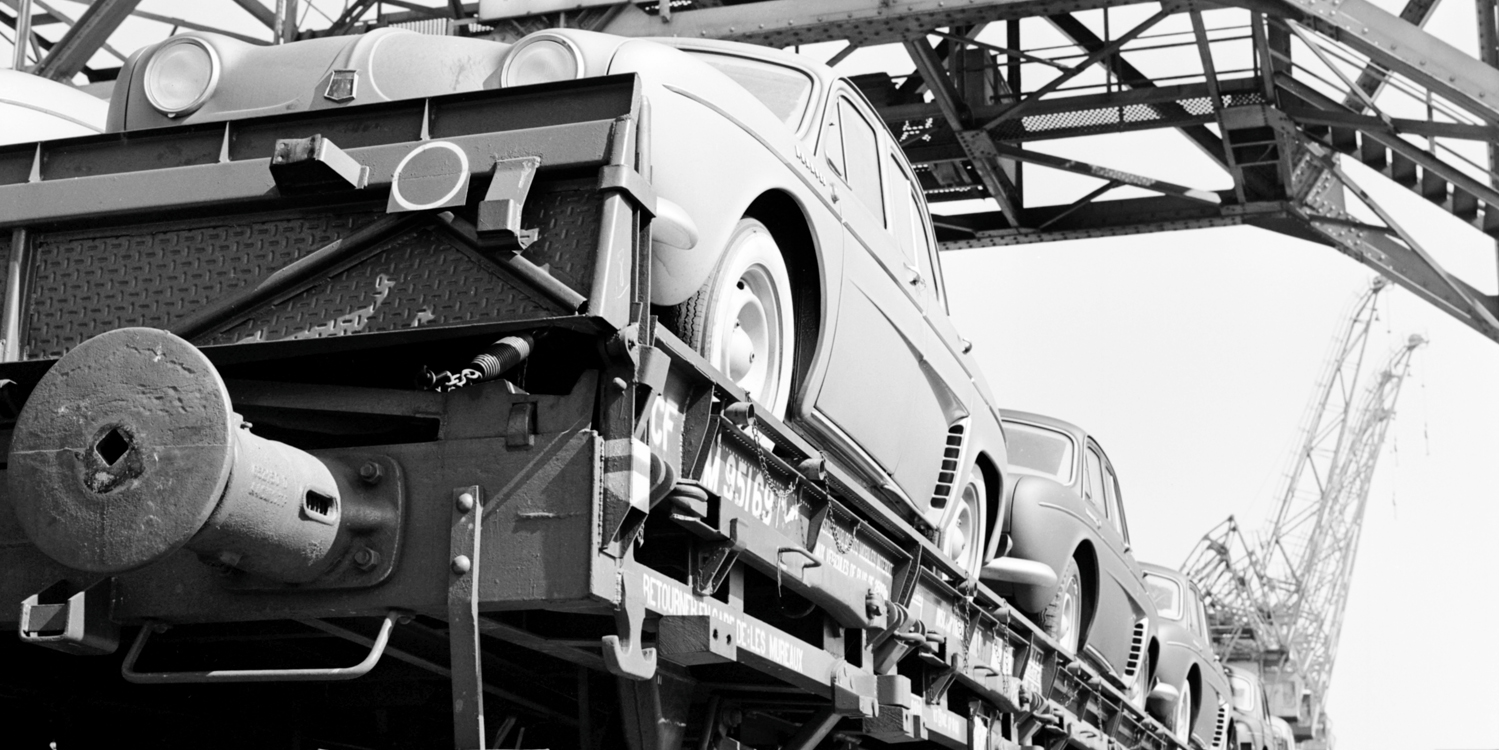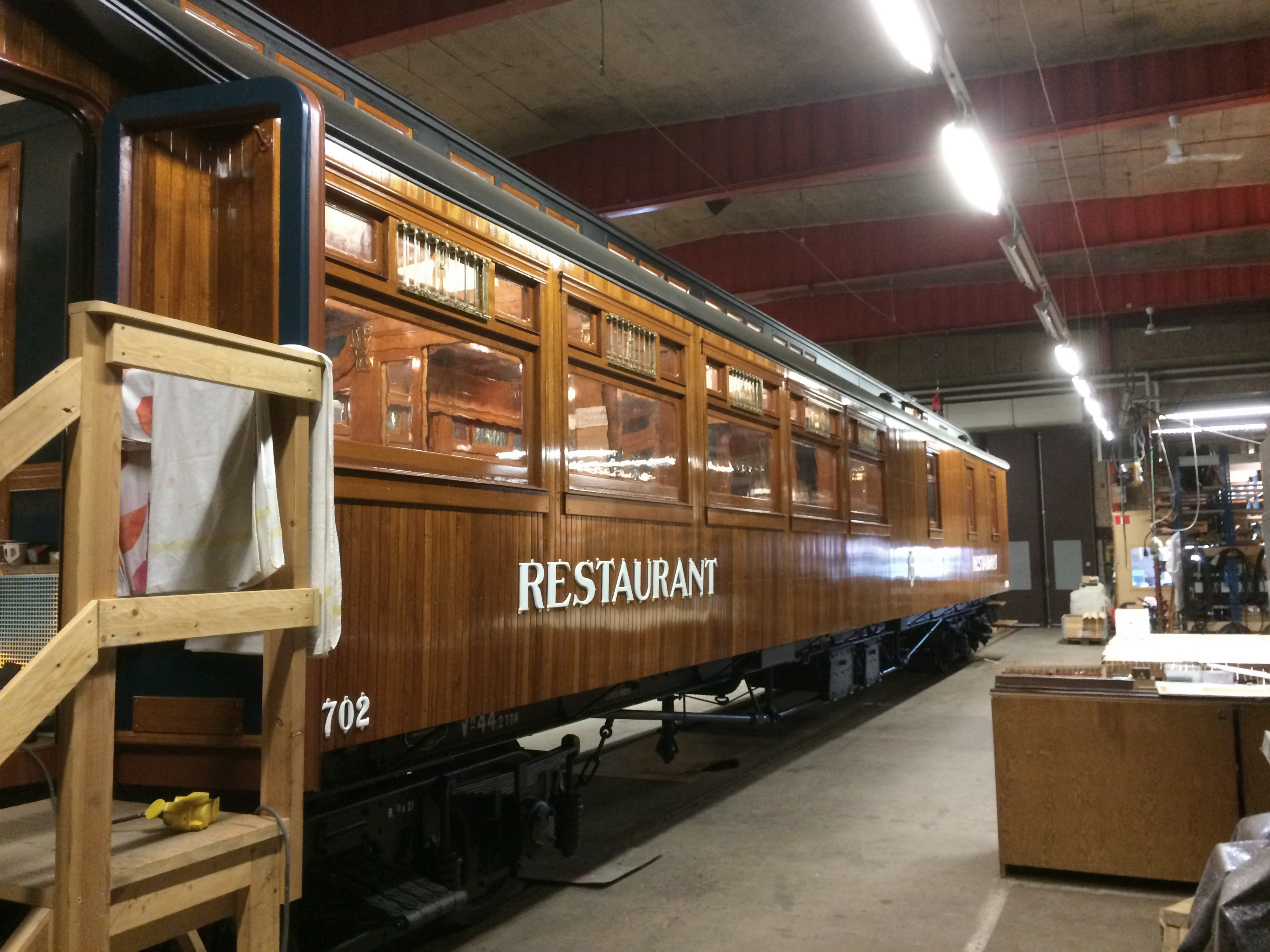
Research
Research is an important part of the Railway Museum's activities. Read more about the projects being carried out below.
What do you think of our website?
Help us make it even better by taking this year's web survey. Thank you for your time and have a great summer!
Current projects
Transporthistoriska underlag [Transport history data]
Transporthistoriska underlag is a pilot project carried out in collaboration between SMTM, the Centre for Business History and the Swedish Transport Administration. By mapping and compiling research in the field, and arranging, listing and digitizing a selected archive material, the aim was to facilitate research on transport history and infrastructure in historical perspectives, and to provide the Swedish Transport Administration with support for planning and care of transport history environments. Among the collections that the project worked with were the railway history collections at the Swedish Railway Museum in Gävle, the road history collections in Arboga and Kjula and the aviation history collections in Rosersberg. The project was completed in spring 2024. From SMTM, Robert Herpai and Charlotte Hagström (now at Lund University) participated in the project group, and Björn Hasselgren and Sophie Nyman in the steering group.
The final report Transporthistoriska underlag till nytta för infrastruktur och forskning: en förstudie (2024) is available in Swedish on the Swedish Transport Administration's website.
Completed projects
Järnvägens gröna kulturarv [The railway’s green cultural heritage]
When railway construction began in Sweden in the mid-19th century, plantings for decorative, utility and protective purposes were part of the new transport system. Planting efforts at the country’s railways were extensive up to the mid-20th century. The overall objective of the project was to gain deeper knowledge of this green cultural heritage and provide a perspective on current issues concerning railway environments.
It was conducted in two stages between 2016 and 2023. The first stage concluded with the licentiate thesis Planteringar vid järnvägen. Funktion och organisation under stambanornas första tid [Plantings along the railway. Function and organisation during the early days of the main lines] (2020). The second concluded with the doctoral thesis Staten som trädgårdsmästare. Järnvägens planteringar från naturförsköningskonst till testamente [The State as landscaper. The railway’s plantings from natural beautification art to legacy] (2022). Both were written by Anna Lindgren, who at the time worked at the Swedish Railway Museum and at the Department of Conservation, University of Gothenburg.
The project was a collaboration between the Swedish Railway Museum, the Department of Conservation at the University of Gothenburg and the Swedish Transport Administration.
Färg som material [Colour as material]
The project, which originated in the restoration activities of the Swedish Railway Museum, had a craft sciences focus and investigated anti-rust painting treatments of iron with linseed oil-based paints. It started in 2016 and ended in 2021 with the doctoral thesis Painting Treatments of Weather-Exposed Ferrous Heritage. Exploration of Oil Varnish Paints and Painting Skills by Arja Källbom, from the Department of Conservation, University of Gothenburg.
The project was a collaboration between the Swedish Railway Museum, the Swedish Transport Administration and the Department of Conservation at the University of Gothenburg.
Conferences
A transport history research conference was held in November 2023, bringing together around 35 participants from various Swedish universities and higher education institutions. Over the course of two days, historical perspectives on transport by rail, road, air and water were presented by researchers working in fields such as ethnology, history of technology, cultural conservation and economic history. The conference is planned to be held annually.
Restoration

Since 1998, the Railway Museum has had a restoration programme to preserve and maintain vehicles of cultural-historical value.
Before the start of each restoration project, a decision is made about which period the locomotive or carriage is to be preserved in and (where applicable) restored to. The vehicles are also made fit for service again.
The museum staff working on the restoration of locomotives and carriages have various specialised skills. They include carpenters specialised in furniture making, an antiquarian, a blacksmith and experts in surface treatment. There is also an expert in marking and designations, i.e. how vehicles are identified using letter symbols.
Restoration is a research and development activity in which we seek answers to new questions about materials and methods that are constantly emerging.
Contact
No image has been selected
Björn Hasselgren
Scientific Adviser to SMTM/Swedish Railway Museum Holds a PhD in planning and planning theory at KTH Royal Institute of Technology. Senior Adviser at the Swedish Transport Administration in strategic infrastructure planning. Visiting Research Fellow at the Department of Economic History at Uppsala University.
Areas of interest: the long-term development of transport infrastructure, 18th century to present day. Matters related to the organisation and financing of transport infrastructure, and the balance between public and private responsibility for the systems.
Email: bjorn.hasselgren@ekhist.uu.se
Phone: 070-762 33 16